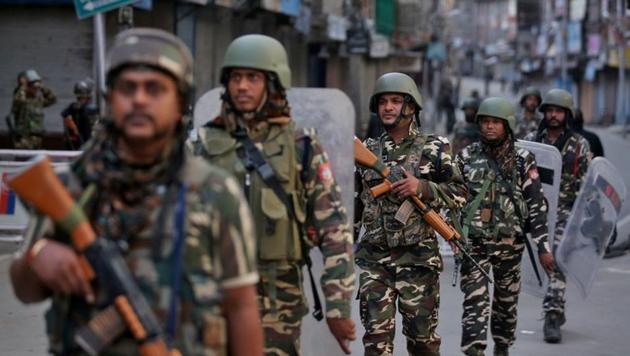Junior leaders of the security forces hold the key to the success of India’s Kashmir policy
Kashmir stands at a pivotal point in history. And it is the security forces who are the vanguard of the political rebirth of the region
“Never in the field of human conflict, was so much owed by so many, to so few.” Winston Churchill said this on August 20, 1940, referring to the Royal Air force pilots who fought off the German Luftwaffe, despite overwhelming odds during the Battle of Britain. Those words would aptly describe soldiers of 1st Sikh, who dashed to Srinagar seven years later, as the future of the state of Jammu and Kashmir was pivoting around Srinagar airport.

The First War of Kashmir, as this conflict was known, was incredulous in many ways. Both armies, pitted against each other, were led at the strategic level by British Generals who reported to the same Field Marshall. Both armies had a deep understanding of each other, having fought during the Second World War. Both armies believed, as armies do, that they were fighting for a just cause. Except that one initiated the hostilities under the subterfuge of tribal militia — when in fact, it was a well-planned and orchestrated campaign supported, politically and logistically, by the Pakistani State and its army. The other entered the battlefield only after formal accession of the territory they had a moral right to defend.
The battle to wrest back Kashmir was not one continuous campaign in which Pakistanis were smashed back. Instead, it was a series of raging battles along different thrust lines, in which troops from both sides fought without giving or seeking quarter. As with most wars, it was a junior commander’s battle. The strategic inflections like the landing of troops in Srinagar or the movement of tanks through the Zoji La pass, were indeed strategised by the generals, but it was the unit commanding officers and junior commissioned and non-commissioned officers, who won the war, as the world witnessed the might of independent India’s security forces.
At the end of the day, battles are fought and won by junior leaders of security forces. In conflict zones, it is they who are the last hundred metres of a nation’s foreign policy. It is they, who have to translate the strategic intent of the supreme commander into ground reality. Our junior leaders put their lives on the line to uphold their nation’s policies, as they have done for the past 70 years in the Valley. They have subdued militancy in the Valley, paying for it in blood, and created conditions for democratic process on several occasions, only to have the initiative lost by political leaders. They have cleared extremist strongholds several times, only to see them being reoccupied by terrorists. They have won the goodwill of people by their yeoman work during natural calamities, only to have it frittered away within months. They have also paid the price of the miscalculation, flawed judgment, inadequate provisioning, poor intelligence, and political volte-face.
The people of Jammu and Kashmir, too, have seen tumultuous trauma since India’s Independence. Their historical experience has been periods of promises of peace and prosperity, interspersed with incredible violence, fear, and pain. A long-ranging conflict creates its own “conflict economy”, with many stakeholders benefitting from it and, therefore, having vested interests in keeping it simmering. The people most invested in securing lasting peace, other than the populace, are ironically the security forces, because they are the ones whose love for the motherland is expressed in blood and wounds. Most others make do with rhetoric and WhatsApp.
Seven decades later, Kashmir again stands at a pivotal point in history. And once again, it is the security forces who are the vanguards of the political rebirth of the region. Given the urgency of this operation, once again they have been despatched to the Valley with little time to prepare or knowledge about what to prepare for. But this time they will have to fight a two-front battle. The first front is swift neutralising of indigenous and external extremist elements who will desperately attempt to wreck physical and psychological damage to reclaim their relevance through extremist narratives. And this is an incredibly difficult task in an insurgency, because of the second, and more important, front. The battle for the minds of 1.2 crore citizens of Kashmir.
The strategic intent of the leadership of our country is to establish the trust of, and prosperity for, every citizen, and once again, our junior leaders will be the last mile of implementing that intent. Commanding officers will have to reiterate the translation of that intent to the people of Kashmir through frontline leaders at section and platoon commander’s levels who mostly operate in penny packets. And this is because the battle of the mind will be fought more in street-level perceptions than in official assurances and promises. Commanding officers will have to remind young officers that their actions over the next few months will leave a legacy that they will have to confront in their years of service ahead. Once again, the world is watching the course of their actions, and once again, never was so much owed by so many, to so few.
Raghu Raman is a former soldier. He tweets at @captraman
The views expressed are personal






